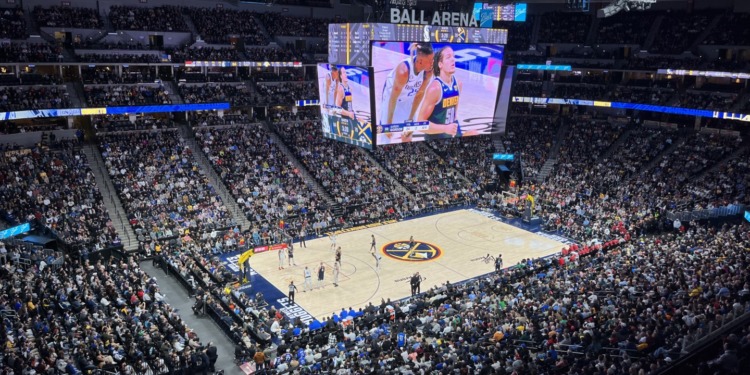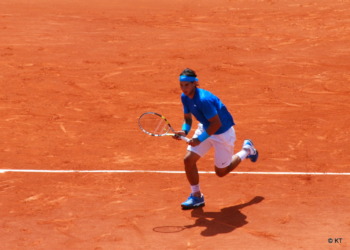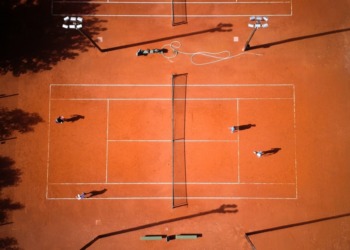America’s National Basketball Association (NBA) has a massive sustainability issue that has gone unchecked. Until now.
Now facing serious backlash, will the NBA be able to turn things around? And what kind of actions will it take to make basketball in the United States future-proof?
The NBA isn’t the only sports tournament with questionable environmental practices. Analysts have recently put under scrutiny the sustainability of the 2030 Football World Cup. However, considering the popularity of the NBA and its environmental impact — the largest polluter of the major American sports leagues — let’s have a look at what the NBA is doing and how it could improve.
NBA games and air travel
The NBA sees 33 teams competing in 82 games each season. Emissions related to transportation are clearly the biggest issues the league has to face. Thankfully, it’s also one of the first the NBA has spotted and begun to fix.
In the 2022-2023 season, the league organized each team’s matches to minimize unnecessary movement, saving 90,000 kilometers in air travel. Although this seems like good news, the impact of this decision only meant a 5% reduction in the league’s total air travel distance.
Part of the issue is how unavoidable air travel is in the United States. This is why every major American sports league suffers from the same problem. When COVID-19 hit, schedules temporarily changed, reducing the leagues’ pollution by 26%. But now everything is back to normal.
While there are plans to reduce the emissions of air travel, there isn’t an alternative to airplanes for long-distance — sometimes transcontinental — travel.
Recycled jerseys and shoes
Recycling is another important step in the NBA’s journey toward sustainability. Recycling means: making sure all used-up material is properly recycled and giving new life to what would otherwise become waste.
However, in the case of the NBA, they’d rather you use the term “upcycling.”
Introducing our latest NBA Collab: the Home/Away, Rivalry & Game Changer backpacks! By giving new life to uniforms that would otherwise be discarded, these backpacks continue to add to their legacy. Limited edition, limited quantities. Claim yours now! https://t.co/L9tBrEDotp pic.twitter.com/JK3IIiKgaZ
— LOOPTWORKS (@looptworks) May 20, 2021
A partnership with Looptworks, a business focusing on joint upcycling projects with many well-known brands, has allowed the league to give their unused materials a second life. As Looptworks notes, in the NBA, “players get traded or move on. What do you do with stacks of obsolete game jerseys and fan replica jerseys?”
While the league has some impressive achievements to show, like their recycled glass basketball court in Madrid, Spain, the most important steps are much more mundane.
As the NBA itself writes, some of the first and most important steps were to add recycling bins in the venues, encouraging fans to participate in the league’s efforts. While the league still has a lot of work to do, it certainly embraced its role in changing the public’s attitude towards sustainability.
Related articles: Sustainability and F1: Strive to Survive? | Rugby World Cup 2023: Shot Clocks and Sustainability | Battle of brands: Nike vs Adidas, who’s more sustainable? | Reshaping Western Sports: The Gulf Region’s Influence on the Global Arena
Who is guiding the NBA in its quest for sustainability?
Dr. Allen Hershkowitz has been acting as the NBA’s Green Sustainability Adviser since 2007. His other patrons include the MLB, the NHL, and the Motion Picture Academy. He is “the man to know in sports sustainability,” as he was named by Sports Business Journal.
Hershkowitz, who comes from a career in environmental advocacy, has a clear reason for switching to sports. In his words:
“Less than 20% [of adults in the United States] follow science, and over 80% follow sports. So, if you want to educate people and hopefully change behavior, you need to meet people where they’re at.”
While the NBA must address its excessive emissions, we shouldn’t forget how much influence its teams and athletes have on the public. The Portland Trail Blazers are often cited as one of the most virtuous teams in the league. There are good reasons for this. Their efforts have successfully reduced the emissions of their field, diverting most of their waste from landfills. But their ability to be an example to their fans is perhaps just as important, and it shouldn’t go unnoticed.
Editor’s Note: The opinions expressed here by the authors are their own, not those of Impakter.com — In the Featured Photo: Ball Arena, home of NBA champions Denver Nuggets, in Denver, Colorado. Featured Photo Credit: Leandro Neumann Ciuffo.










